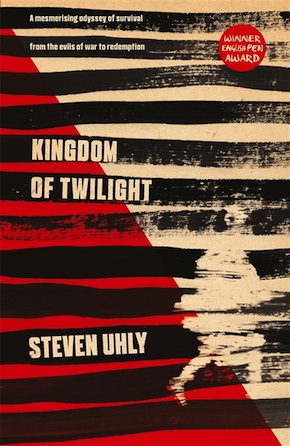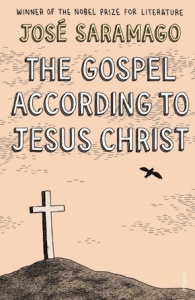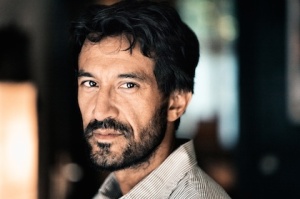Steven Uhly: A life of encounters
by Mika Provata-Carlone
“Powerful and original.” The Times
The chance to converse with Steven Uhly is not just a meeting but a real and even formative encounter, a moment of wisdom, laughter, serious and relaxed humanity. He is someone with a very distinct presence, ineradicable and self-effacing at the same time, poetic and materially concrete. He exudes indomitable strength and very serene, reflective calmness, is keen to think, share stories, views, questions, offer very articulate insight into a life of writing and experience which itself seems to have been shaped, informed, blessed by seminal or quietly private encounters. He has been a traveller, translator, editor, publisher, university lecturer, he is a writer immersed in history and philosophy, a lover of Spanish, Portuguese and South American rhythms and words, of music and mathematical puzzles. He has a talent for empathy and human engagement, even if some have accused him of being a Hetzer und Spalter, an agitator and a contentious voice. He is, in his own words, “on a quest for truth and beauty”, and especially for meaning, for a balanced, shared humanity.
Uhly was born in Cologne in 1964, the son of a German mother and the Bengali father she met in London, where she was an au pair with a Jewish family. The time Uhly’s mother spent with her Jewish hosts was a revelation, a painful yet tremendous questioning and readjustment of her sense of identity, historical perspective and sympathetic truths. Germany, Uhly explains, was a closed, entropic system after the Second World War, determined by denial, delusion, wilful ignorance, a sense of ex nihilo recreation. His mother learned about the Holocaust in London, and this lacuna, this necessary confrontation with guilt and the inevitability of historical fact, but also the madness of a blinding reason and unreason, marked Uhly permanently and unwaveringly. He grew up in a world where stories were a refuge and a constant warning, where books provided a room of his own away from the tense relationship between his mother and his Spanish stepfather, but also sounded the alarm against repressed narratives. His maternal grandmother gradually retreated into her own space of fading reason and repetitious war stories, where the two world wars, their traumas, material devastation and moral weight acted as a total block for several generations of a troubled, at times harrowingly troubling nation.
A story is about the complexity of life, and an author must ‘become’, not simply represent, every single complexity in his or her story, be and think like every character.”
Uhly tells of how he grew up feeling ashamed of being German, not simply because of what Germany had caused and allowed to happen in the twentieth century, but especially because he had not been taught to think about either the events or their origins. He grew up feeling both guilty and a retrospective victim – as a mixed-race child he received more than his unfair share of discrimination and racial hatred, forcing him to question every aspect of belonging, the very context of identification, its necessity, perhaps, when perceived strictly, reductively, polarisingly.
There is a sense that this grandmother’s (and post-World War II Germany’s) obstinate, almost screaming silence acted as an irresistible impulse for Uhly to ask questions, analyse, unflinchingly scrutinise utter darkness under the starkest light, and staunchly seek a different path. Poetry, he insists, provided the inklings of that truth and beauty he has now made into a life-journey, the “something that could save him as a human being”.
Uhly’s responses below are drawn from his many observations during our conversation in London, and a conversation with his translator Jamie Bulloch in an event at the Free Word Centre the same day.
MP-C: You choose to tell the untold stories behind a more or less familiar narrative: homelessness, marginal, broken lives, the Holocaust, post-war, Cold War Europe, Israel, immigration, racism, denazification, but also family ties and simple humanity. Are stories the antidote to history and its traumas?
SU: An author cannot judge – a judgement is not a story, it is binary, a dualism, misleading and distorting. A story is about the complexity of life, and an author must ‘become’, not simply represent, every single complexity in his or her story, be and think like every character who must live in it. The special thing about the arts is that they do not talk a discursive language. The reader does not make a choice, but experiences that complexity as it happens, as it acts, as it affects both the actors and their environment. There is no straight line from the arts to life, you are passively active, open to every path of the story’s lives. This gives the reader the opportunity to truly feel every option.
A psychodrama, in a sense?
Yes, your mind in a way believes, has to believe, everything. The arts open up the spaces.
In your short essay ‘On Race and Identity’ you said that “something that is being denied, cannot be thought over” and that “[German] post-Holocaust racism is something quite complicated to explain, because it’s linked to a collective feeling of guilt, which can be denied but hardly forgotten. It causes unease in the people who feel this way, as if they didn’t know how not to be racist.” Are we still in denial? Are we constantly and in new, more frightening ways, denying the humanity of others?
There must be madness in denial, in the 1930s and now. In Germany after the war we had to face guilt, moral and legal guilt. The result was the Historikerstreit1. My own struggle with racism, race and belonging has told me that hatred cannot be opposed by counter-hatred. That is a forbidden shortcut that creates the illusion of safety, but does not provide ethical criteria. The present preconditions how we see the past, and my view of myself is all I have in order to look at history as a story, taking it back to its fundamental function as the narrative of human lives. Right now our biggest problem is that we don’t know what to learn from the refugee crisis.
In Kingdom of Twilight one could say that Obersturmführer Ranzner is an Eichmann figure – do you think Hannah Arendt was right about “the banality of evil”? Are we any closer to eradicating either banality, or evil, from our lives?
 What we have learnt is that there was nothing rational about Nazi ideology. Evil is not just out there, Arendt was absolutely right. José Saramago, one of the people I call my masters, wrote a book called The Gospel According to Jesus Christ. In his version of the killing of the children of Bethlehem, he makes Joseph know of what is about to happen. He runs to hide without warning others. That too is the banality of evil, the infesting of souls.
What we have learnt is that there was nothing rational about Nazi ideology. Evil is not just out there, Arendt was absolutely right. José Saramago, one of the people I call my masters, wrote a book called The Gospel According to Jesus Christ. In his version of the killing of the children of Bethlehem, he makes Joseph know of what is about to happen. He runs to hide without warning others. That too is the banality of evil, the infesting of souls.
What is the origin and meaning of the title Kingdom of Twilight?
Jews called concentration camps ‘Kingdom of the Night’ referring to Mozart’s Magic Flute, and for me it is a metaphor of the twilight of life in camps.
You have said that “the most serious research undertaken by an author who works as I do, takes place in one’s inner space.” What does this inner space mean for you?
You cannot ‘change’ society, you can only attempt individual paths, try to find a way back to yourself. To recognise the humanity of others you first have to recognise, truly recognise, your own. In Brazil I lived as a fugitive, I obviously belonged, but did not feel Brazilian. It was a turning point. I decided to return to Germany and face all that I was or was not. In Brazil I defined two options: to forget or dig deeper in the history, try to find something that matched my approach to reality. I realised that I did not know anything about the continuity of history. I had learned neat ‘packages’ of history, but none of the transitions. I wanted to explore and understand the fluxes of history and events. After World War II the fate of refugees was still terrible. Jews sought a safe haven in Germany of all places, living for years as displaced persons wearing SS uniforms because there were no other clothes. That was a reality I could not escape, as was the resistance towards a mass exodus of Jews from Europe to Palestine, especially by the British. In the 1970s the Holocaust was as much silenced in Israel as it was in Germany – shame, the shame of survival, of having been a victim, being the respective cause.
I can bear the past. I often say, ‘May the Holocaust protect us’ – may the fact that it happened prevent repetition.”
You stress that your starting point, your fundamental precept is that we all share the originary moments of our humanity and are therefore capable of understanding, empathy, analysis: “The very process of how art is born, is evidence of the fact that we share everything in common.”
Exactly. An author talks to everyone. In José Saramago I discovered that empathy for the human condition – he is a writer I think has been much misread as subversive. He was not, he was iconoclastic. He taught me that one could write about history in a different way. He, together with João Ubaldo Ribeira and Umberto Eco, showed me that we are all multiples –Fernando Pessoa’s heteronyms, if you prefer – that the author exists as a fragmented being inside the story, and that there is no reliable narrator. Instead the characters all reflect aspects of the author, recompose themselves into the author. Novels are frames of the many fragments of a life, as in Nietzsche’s perspectivism. This, to me, is a poetics of writing and of being.
You speak of seeking a way out from what you have identified as “the darkest recesses”. Jamie Bulloch also asked you about the formidable task of historical research behind Kingdom of Twilight and whether you were emotionally exhausted by the book.
I was asked why I did not write a ‘fact’ book. I replied that facts were not secret knowledge, everyone can access them. What I wanted to do was create the experience of the facts. If the story works well, then it gives you the energy it takes away from you. The exhaustion I felt was regarding the Holocaust and the war. I now feel that I am no longer caught up between the extremes of victim and perpetrator. I can bear the past. I often say, “May the Holocaust protect us” – may the fact that it happened prevent repetition.
Do your stories develop gradually and methodically over time or do they depend on a single, singular moment when everything seems to come sharply into focus?
Both are true. I write in the morning, when my children are at school. In the afternoon I will play music (the piano or the guitar) and I have realised that this is a synergy that is essential for me. [Music composed by Uhly was used in the film adaptation of his novel Glückskind]. I see the scenes of my novels in my mind, and I transcribe and create them at the same time, it happens simultaneously.
Memory: how would you define it? What is one’s duty towards memory? Is there a vital need for memory?
Memory is inevitable and uncontrollable. I think that’s most important because it means that memory can save us from repeating mistakes even when we want to. It has an impersonal aspect which in a way seems linked to life in general. I believe that even the act of forgetting is part of the process we call memory. When I write a story, I’m participating in this universal process, as long as I don’t cling to my ego. The ego narrows everything down to my own life. But stories only work for me when I manage to become nobody/everybody. Then I get access to this universal memory, where I feel that everything is stored and remembered.
1 The historians’ quarrel in the 1980s as to what was the right way to remember the Nazi past and especially the Holocaust. The right-wing historian Ernst Nolte argued that a positive sense of national identity, which excluded any special sense of German guilt, was the way beyond an impossible past. The Holocaust was not unique, according to Nolte, and could therefore be guiltlessly forgotten. Jürgen Habermas would call this stance a ‘whitewashing’ of history, initiating a long intellectual and ethical debate that would redefine the understanding of history, the relationship between past and present, the very essence of attributing values of right and wrong, penance and restoration.
 Steven Uhly is the author of five novels, two story collections and numerous essays, and he has translated poetry and prose from Spanish, Portuguese and English. Kingdom of Twilight is published by MacLehose Press. Read more.
Steven Uhly is the author of five novels, two story collections and numerous essays, and he has translated poetry and prose from Spanish, Portuguese and English. Kingdom of Twilight is published by MacLehose Press. Read more.
Mika Provata-Carlone is an independent scholar, translator, editor and illustrator, and a contributing editor to Bookanista. She has a doctorate from Princeton University and lives and works in London.

